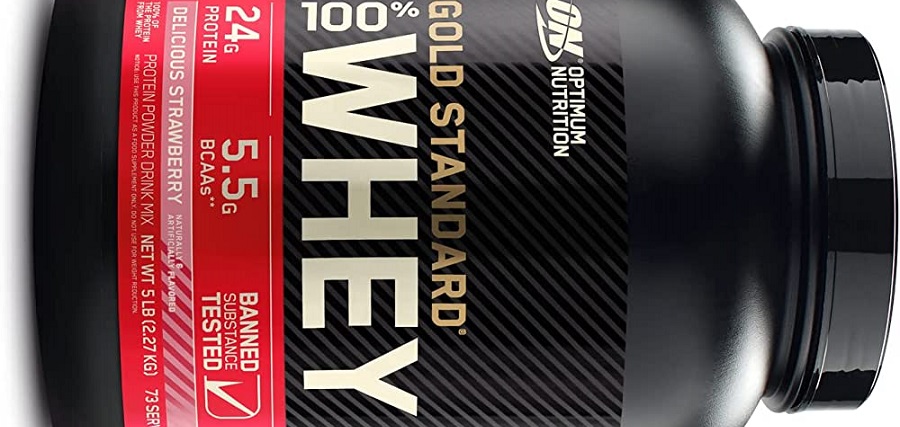Whey protein is a popular supplement among athletes, bodybuilders, and fitness enthusiasts as it is a high-quality source of protein that can help build muscle and aid in recovery. The timing of when to take whey protein can have an impact on its effectiveness, so it's important to understand the best times to take it.
The best time to take whey protein is shortly after a workout. This is because after exercising, the body's muscle fibers are broken down, and the body needs protein to repair and rebuild these fibers. Taking whey protein immediately after a workout can help the muscles recover and grow more quickly.
Another good time to take whey protein is in the morning. Consuming protein in the morning can help to prevent muscle breakdown that occurs overnight, and it can also help to keep you feeling full and satisfied throughout the day.
Additionally, whey protein can also be taken before bed. This can help to prevent muscle breakdown that occurs overnight, and it can also help to promote muscle recovery while you sleep.
Lastly, whey protein can be consumed at any time of the day, as long as it fits into your daily calorie and macronutrient goals. It's important to note that if you are taking whey protein with a meal, it is better to consume it with a low-fat meal to prevent any stomach discomfort or bloating.
It's also important to note that consuming too much whey protein can lead to an excess intake of calories, which can contribute to weight gain. It's important to consult a healthcare professional to determine the best dosage for you, based on your individual needs and goals.
What are the best times to take whey protein?
The best times to take whey protein are:
-
Shortly after a workout: Taking whey protein immediately after a workout can help the muscles recover and grow more quickly.
-
In the morning: Consuming protein in the morning can help to prevent muscle breakdown that occurs overnight, and it can also help to keep you feeling full and satisfied throughout the day.
-
Before bed: Taking whey protein before bed can help to prevent muscle breakdown that occurs overnight, and it can also help to promote muscle recovery while you sleep.
-
At any time of the day, as long as it fits into your daily calorie and macronutrient goals.
It's important to note that timing is not as crucial as consistently meeting your daily protein needs over time. If you miss the "optimal" time, don't worry, as long as you reach your daily protein intake goal, it will still be beneficial for muscle growth and recovery.
How soon after a workout should I take whey protein?
The ideal time to take whey protein after a workout is within 30 minutes to 2 hours. This window of time is known as the "anabolic window" and is considered the optimal time for muscle repair and growth. Consuming whey protein within this window can help to stimulate muscle protein synthesis and aid in muscle recovery.
It's also important to note that consuming protein before your workout can also be beneficial, as it can help to preserve muscle tissue and improve performance during the workout.
It's recommended to consume around 20-40 grams of protein after a workout, this quantity will provide the necessary amino acids for muscle recovery and growth. However, it's important to consult a healthcare professional to determine the best dosage for you, based on your individual needs and goals.
Additionally, it's important to consider the source of your protein, not all protein sources are created equal. Whey protein, in particular, is a fast-digesting protein that can be quickly absorbed by the body, making it an ideal choice after a workout.
Is it better to take whey protein on an empty stomach or with a meal?
It depends on your goals and personal preference.
Taking whey protein on an empty stomach can be beneficial because it is quickly absorbed by the body and can help to stimulate muscle protein synthesis. This can be especially beneficial after a workout when the muscles are in need of repair and growth. Additionally, taking whey protein on an empty stomach can also help to preserve muscle tissue and improve performance during a workout.
On the other hand, taking whey protein with a meal can also be beneficial because it can help to slow down the digestion and absorption of the protein. This can lead to a more sustained release of amino acids into the bloodstream, which can be beneficial for muscle recovery and growth over a longer period of time. Additionally, consuming protein with a meal can also help to keep you feeling full and satisfied.
It's also important to note that consuming whey protein with a low-fat meal can prevent any stomach discomfort or bloating.
Ultimately, the best time to take whey protein will depend on your individual goals and preferences. It's important to consult a healthcare professional to determine the best dosage for you, based on your individual needs and goals.
How much whey protein should I take per day?
The recommended daily intake of protein varies depending on several factors such as age, sex, activity level, and muscle mass. The general recommendation for healthy adults is to consume 0.8 grams of protein per kilogram of body weight per day, which is equivalent to around 56 grams of protein for a sedentary man and 46 grams for a sedentary woman. However, athletes and bodybuilders may have higher protein needs.
As for whey protein specifically, the recommended dosage can vary, but a typical range is around 20-40 grams per day. Some studies suggest that consuming 20-25 grams of whey protein per day can be effective for muscle growth and recovery. However, other studies suggest that consuming larger doses (up to 40 grams per day) may be more effective.
It's important to consult a healthcare professional to determine the best dosage for you, based on your individual needs and goals. Factors such as your weight, muscle mass, activity level, and dietary habits will also play a role in determining the appropriate dosage. Additionally, it's important to monitor your overall calorie and macronutrient intake to ensure that you are not consuming too much protein and putting yourself at risk for negative health effects.
Can I take whey protein if I'm trying to lose weight?
Yes, whey protein can be beneficial for those trying to lose weight. Consuming protein can help to increase feelings of fullness, which can lead to a reduction in calorie intake and aid in weight loss. Additionally, muscle mass is important for weight loss because muscle is more metabolically active than fat, meaning that it burns more calories at rest. Consuming adequate amounts of protein can help to preserve muscle mass during weight loss.
Whey protein is an excellent source of high-quality protein, and it can be a useful tool for those trying to lose weight. It can be incorporated into meals and snacks to increase protein intake and promote weight loss. However, it's important to note that consuming too much whey protein, or any other protein supplement, can lead to an excess intake of calories, which can contribute to weight gain.
It's important to consult a healthcare professional to determine the best dosage for you, based on your individual needs and goals. They can also provide guidance on how to incorporate protein into your diet in a healthy and sustainable way, and how to monitor your overall calorie and macronutrient intake to ensure that you are not consuming too much protein and putting yourself at risk for negative health effects.
How does whey protein affect muscle recovery?
Whey protein is a high-quality source of protein that contains all of the essential amino acids necessary for muscle growth and repair. These amino acids are quickly absorbed by the body, making whey protein an effective tool for muscle recovery.
After a workout, the body's muscle fibers are broken down, and the body needs protein to repair and rebuild these fibers. Consuming whey protein shortly after a workout can help to stimulate muscle protein synthesis and aid in muscle recovery.
Additionally, whey protein is rich in the amino acid leucine, which is a key player in muscle protein synthesis. Leucine helps to trigger muscle growth and repair, and studies have shown that consuming leucine-rich protein sources, such as whey protein, can increase muscle protein synthesis and improve muscle recovery after exercise.
It's important to note that muscle recovery is not only about muscle protein synthesis, but also about muscle damage, inflammation, and fatigue. Consuming adequate amounts of protein and carbs together is crucial for muscle recovery. So, it's recommended to consume a balanced post-workout meal with protein and carbs, and then follow up with a whey protein shake, if desired.
It's important to consult a healthcare professional to determine the best dosage for you, based on your individual needs and goals.
Can I take whey protein if I'm lactose intolerant?
Whey protein is derived from milk and typically contains small amounts of lactose. People who are lactose intolerant may be able to tolerate small amounts of lactose, but may experience symptoms such as gas, bloating, and diarrhea if they consume too much.
If you are lactose intolerant, you may want to consider taking a whey protein isolate. Whey protein isolate has had most of the lactose removed, and often contains less than 1 gram of lactose per serving, making it a suitable option for those who are lactose intolerant.
Another alternative for lactose intolerant people is to use a blend of proteins like pea, rice, and hemp that are lactose-free.
It's important to note that even if you are lactose intolerant, you may still be able to tolerate small amounts of lactose, and everyone's tolerance is different. It may be helpful to start with a small serving of whey protein isolate and then gradually increase the serving size to determine your tolerance level.
It's also important to consult a healthcare professional if you have any concerns or questions about consuming whey protein as a lactose intolerant person. They can provide guidance on how to incorporate protein into your diet in a healthy and sustainable way.


